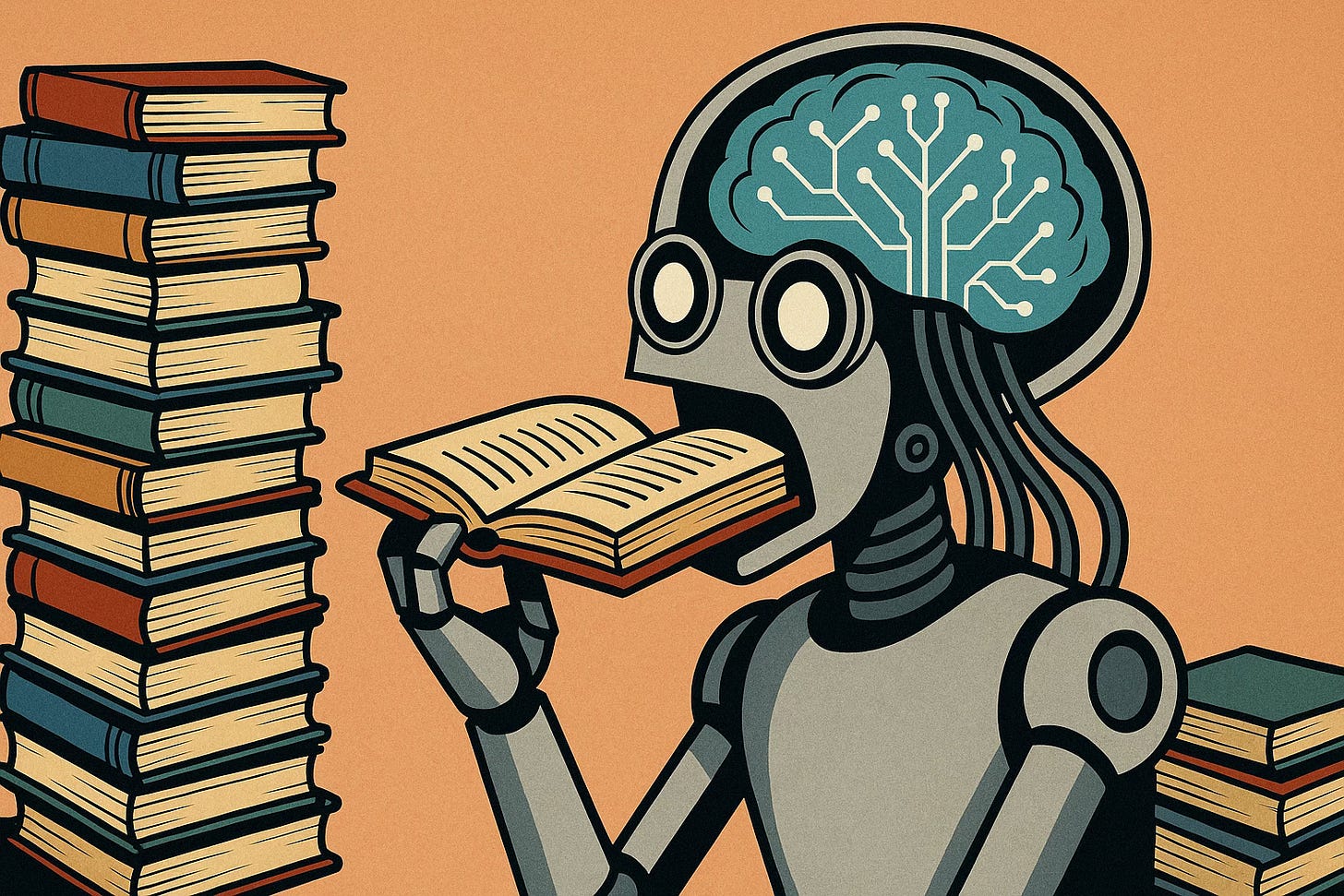I think I've solved the AI copyright problem
A sketch of what a grand bargain might look like
POD! A new episode of The Abundance Agenda just dropped. Martin and I talk Sizewell C and caravans, then we talk to Robert Colvile about housing and whether the Tories can ever embrace building stuff. Listen on Apple, Spotify, Substack or wherever you get your podcasts!
I’m a little nervous to post this one.
I’ve been thinking about the problem of AI and copyright – perhaps the single worst topic you can wade in on at the moment.
I suspect over on Twitter the reception might be slightly different these days, but on Bluesky if you post an AI-generated image, you can guarantee that someone will take you to task, because of the perception of Large Language Models (LLMs) as systems that are built on the theft of intellectual property.
This is very annoying if you enjoy playing with AI image generators, but what makes it worse is that, well, they have a point.
It is true that the likes of ChatGPT and Facebook’s Llama model were indeed trained on copyrighted material. For example, The Atlantic uncovered that the latter was trained using LibGen, a corpus of thousands of pirated books that has been floating around the dodgier corners of the internet for years.
And since ChatGPT exploded in November 2022, there have been numerous allegations and a number of lawsuits making similar allegations about how OpenAI trains its models. In fact, the company has even admitted it would be “impossible” to train without copyrighted materials.
However, even if we assume these allegations are true, what makes the critique awkward is that LLMs are clearly a transformational technological breakthrough. As the many jumps in AI capability over the last few years have demonstrated over and over again, LLMs are not “spicy autocomplete”, as detractors like to claim, but an invention that history may judge as important as the invention of the semiconductor, or the creation of the internet itself.
Hell, it’s not even crazy to speculate that AI might be an even bigger deal than the previous breakthroughs, as if we have an emergent form of machine intelligence it could hugely benefit humanity in the long run.
So this is all to say that there’s clearly a tension here. The invention of the LLMs is like if Isaac Newton had robbed the Royal Mint to fund the research that discovered gravity.
I think this is why we’ve yet to find a satisfying way to make everyone happy in the post-AI world. The perception is zero sum: Either we don’t let the tech companies train, and lose out on transformative technology – or human-crafted art, literature and music just becomes chum for the plagiarism machine.
However, I think this perception is wrong. I think there could be a policy solution to this most intractable of problems, with a grand bargain at the heart of it.
And here’s what it might look like.
Keep reading with a 7-day free trial
Subscribe to Odds and Ends of History to keep reading this post and get 7 days of free access to the full post archives.



